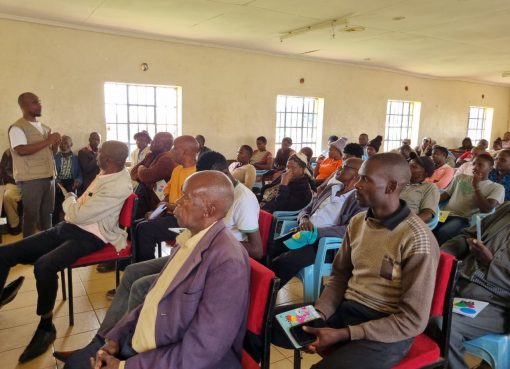Kakamega County government has received aflatoxin-testing equipment that will be used to test aflatoxin levels in cereals like maize and beans to enhance food safety.
The equipment was donated to the county by the Kenya Cereal Enhancement Program-Climate Resilient Agricultural Livelihood Window (KCEP-CRAL).
County Coordinator of KCEP-CRAL Josephine Wanyama handed over the equipment to Kakamega County Executive Committee Member for Agriculture, Livestock, Fisheries, and Cooperative Development, Benjamin Andama.
Wanyama assured the CECM of the KCEP-CRAL’s partnership with the county government Department of Agriculture to contribute to Governor Fernandes Barasa’s food security pillar.
While receiving the equipment, the CECM said it will be used to test aflatoxin levels for farmers across the county to ensure residents consume safe food.
The equipment will help in reducing post-harvest losses in cereals as Kakamega seeks to increase the production of maize.
This comes as the county government is set to spend over Sh700 million to purchase fertiliser and maize seed to be distributed to farmers at a subsidised cost to increase food production.
According to the CECM, in the subsidy programme, planting fertiliser will be sold at Sh1920 for 25 kilogrammes, with the top-dressing one going at Sh1350.
“The county government will also distribute seeds procured from Western Seed Company Limited and Kenya Seed Company Limited at Sh440 per 2-kilogramme packet,” he disclosed.
“Our technical advisers did research and found out that seeds from Kenya Seed perform well in the Northern part of Kakamega, while seeds from Western Seed company do well in the lower part,” he confirmed.
The aflatoxin testing equipment is a boost to the county following the establishment of a food testing laboratory in 2023 to test aflatoxin, fumonisins, and moisture content in maize, sorghum, and other cereals.
It was revealed during public participation that in the lab, the county will charge a flat fee of Sh1000 to test for aflatoxin, fumonisin, and the grading of food samples, as captured in the 2023 Finance Bill.
Initially, the county government would transport food samples for testing in Nairobi.
In 2020, the National Cereals and Produce Board installed an additional five aflatoxin laboratories in the Meru, Eldoret, Machakos, Kitale, and Nakuru depots.
Other NCPB aflatoxin testing laboratories are found in Nairobi Silos, Narok Silos, Moi’s Bridge Silos, Bungoma Silos, and Migori depots.
By Moses Wekesa




